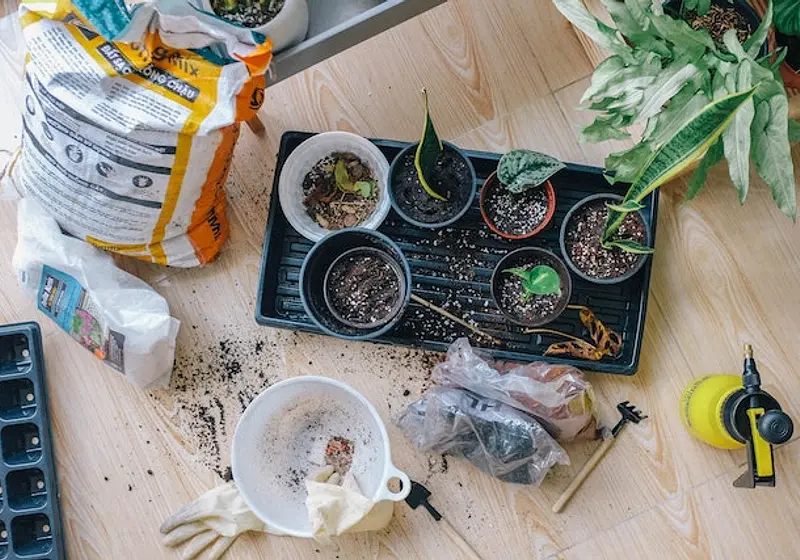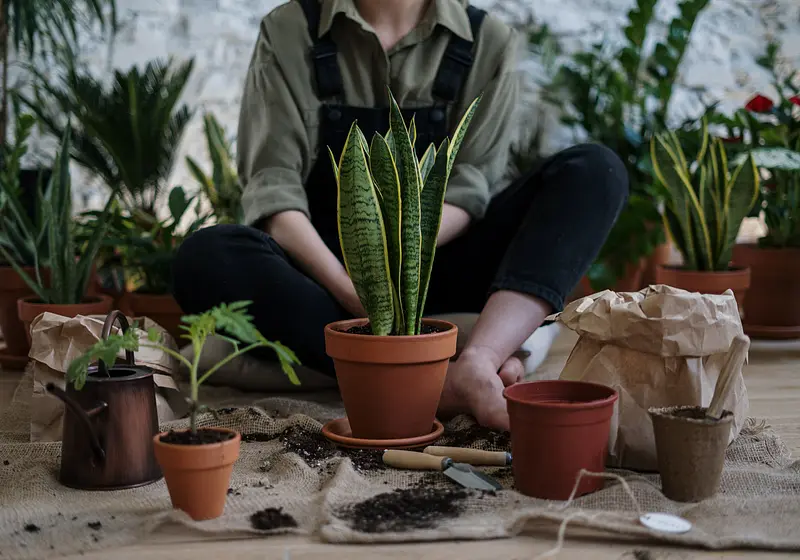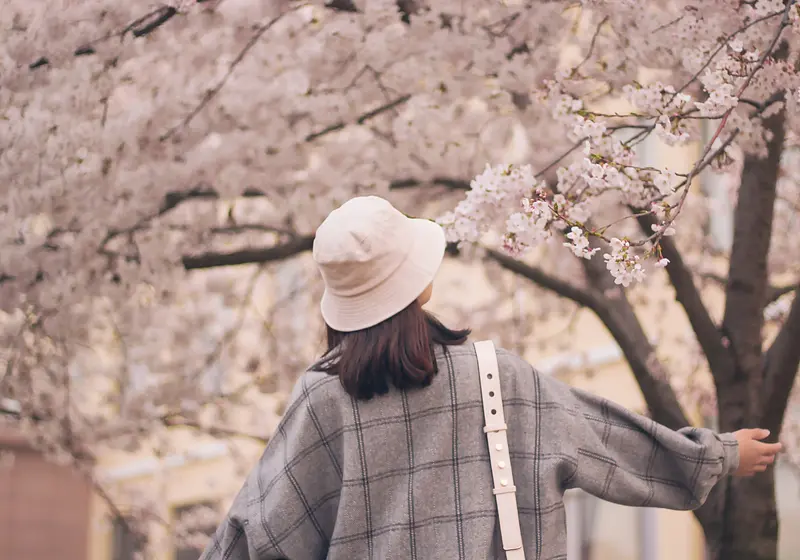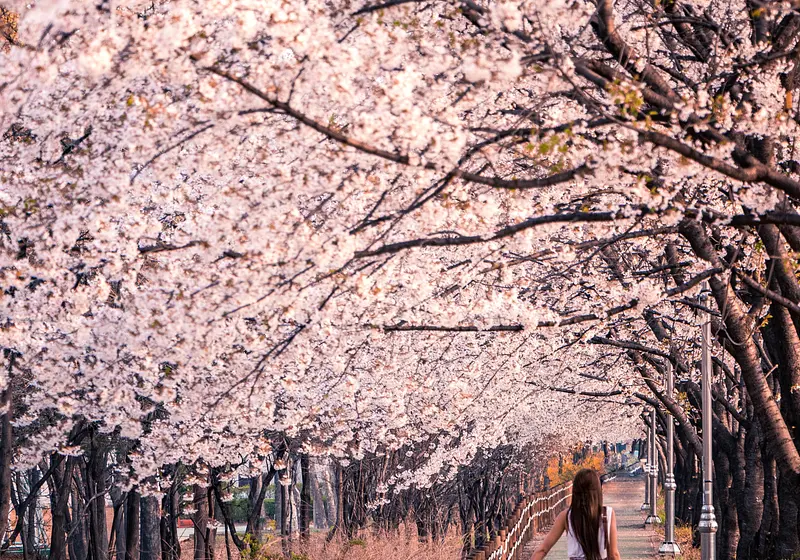Just like being able to do a load of laundry or cook for yourself, being able to grow your own fruits and vegetables is a life skill that allows you to become more independent and self-sufficient. Also, it's also a great hobby, especially if you love plants and the outdoors. But even if you don't have the greenest of thumbs, you can still put together a beautiful garden.
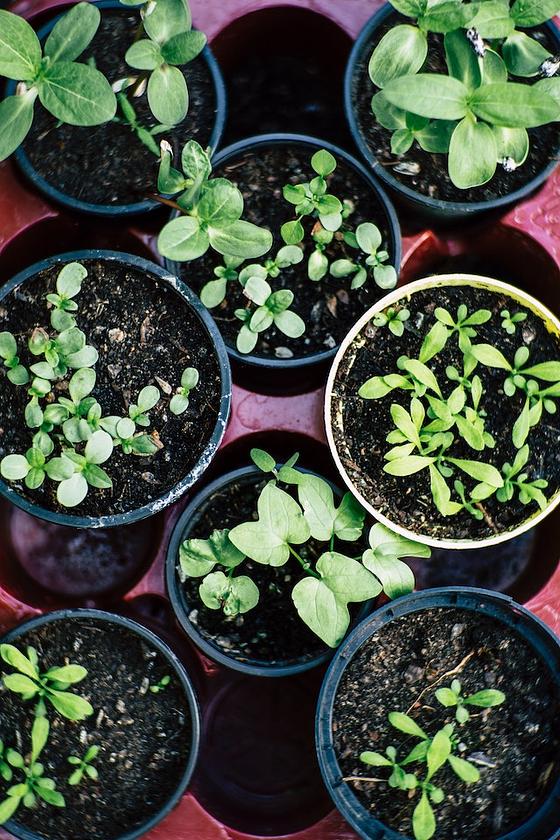
Let us slide into your dms 🥰
Get notified of top trending articles like this one every week! (we won't spam you)Figure Out Your Goals
When you first set out to start a garden, you have to decide what goals you have for it. Do you want to have just a few plants or do you want to have enough to grow most of your own food? Do you want to grow just herbs or a single kind of vegetable?
Start a gardening journal and write down what you envision your garden to look like. Everything from what exactly you want to plant, to how you are going to arrange your plants, to what you hope to gain from this garden.
For example: I want to have an herb garden. With Mint in the first row, Sage in the second, and Dill in the third. I hope to not only grow lots of herbs to use when I cook, but to be able to share them with my friends and family.

Take the Quiz: Which Popular YA Novel Series Should I Read Next?
Find out your next great read after this quiz!
Decide What Kind of Garden You Want
There are so many types of gardens to choose from, including container gardens and raised beds. But the type of garden you start depends on how much space you have and how much time you have to devote to it.
Research different garden types and pick the one that will work best for you, making sure you have the time, ability, and the knowledge to put it together.
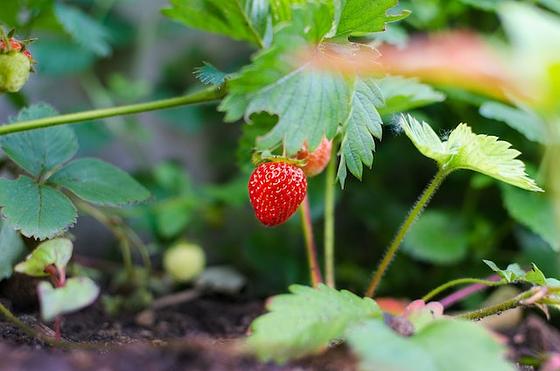
Pick The Right Plants
The most important part of any garden are the plants. Depending on where you live, certain plants will grow better than others. Do some research into what grows well in your area, then decide what you want to plant based on that list.
Another important factor to consider is whether or not to grow your garden from seeds, or plants bought from a nursery. Depending which option you choose, the process of starting your garden will be slightly different.
Always try to buy organic, heirloom, non-GMO seeds or plants as these are the best quality and they are better for the environment and your health. Plus, you can replant the seeds from your heirloom produce. (Some seeds from conventional plants can't be regrown).
Some of the easiest plants to start with are: garlic, bush beans (similar to green beans), potatoes, onions, carrots, and kale.
Herbs such as cilantro, basil, parsley, and mint are also great plants for beginners.
Follow The Instructions
Each plant has its own set of needs in order to grow. Once you know which plants you plan on growing, figure out what each plant needs. Some plants you will need to start inside on a seed mat and others you will be able to put directly in the ground or in containers.
Be careful to follow the instructions on each plant or seed packet to the letter so that you have a better chance of your plants growing and producing.
Usually, plants and seeds should not be put outside until after the last frost, as that will kill them.
Don't Use Chemical Pesticides
Being from the Midwest, I've learned a lot about growing things. One of the most important things I've learned is to never use chemical pesticides, no matter how safe the packaging says it is.
Chemical pesticides contain many compounds that are harmful to your health and the environment. Instead, there are many alternatives that will be beneficial to your garden and your health.
Alternatives To Conventional Pesticides:
For pests with hard outer shells as well as caterpillars such as army worms, use Diatomaceous Earth. Diatomaceous Earth is a naturally occurring substance derived from fossilized algae. It is completely safe for humans.
Another great way to control pests in your garden are plants such as nasturiums and marigolds, which attract predators such as ladybugs, that eat garden pests. Simply just plant a few between your rows. Plus, both nasturtium and marigolds are edible.
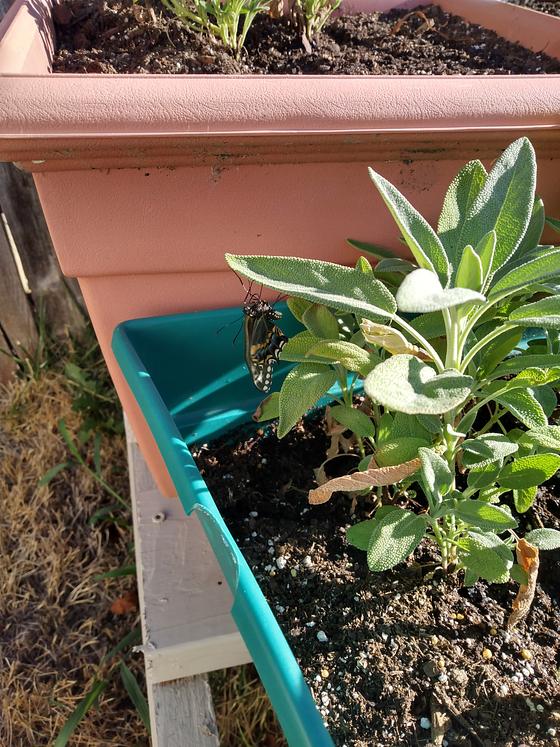
Photo By Cassandra Stinger
Water Regularly
Plants need to be watered regularly in order to produce. A good rule of thumb is to water your plants every other day during the growing season unless it has rained or the soil is still wet from the previous watering.
The best times to water are early in the morning and late in the evening after the sun dips below the horizon.
If you live in a place that gets very hot in the summer, you may need to water your garden more often, as the heat of the day will suck the moisture out of your garden.
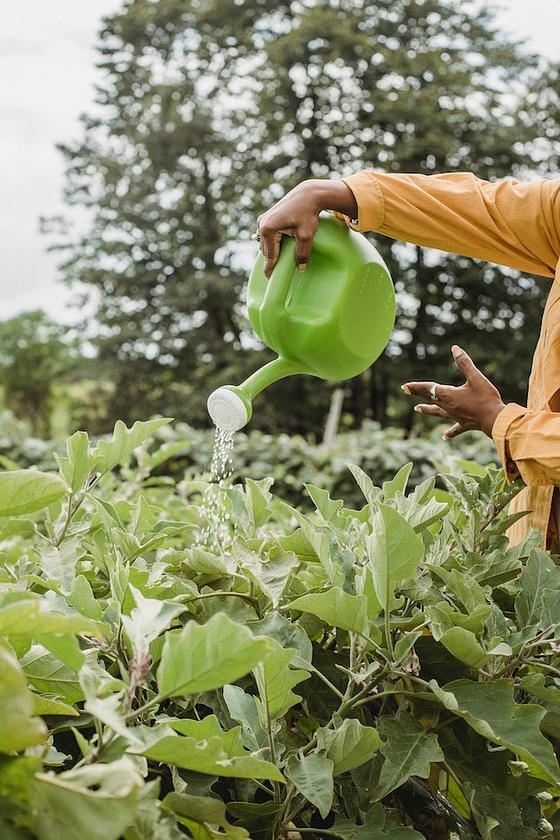
Feed Your Plants
Just like people, plants need more than just water, they also need food. This comes in the form of fertilizer. Three of the best natural fertilizers are manure, Epsom Salt, and compost.
Manure:
Manure is livestock waste that is repurposed to feed your garden. Often, farmers will sell it for cheap or even give it away. Make sure that your manure is a few years old, as new manure is too powerful and can harm your gardens. New manure may also contain seeds that could germinate in your garden.
Epsom Salt:
Minerals are one of the most important parts of keeping your garden well fed. Epsom salt is a compound comprised of magnesium, sulfur, and oxygen. These compounds go into the soil and help the plant grow bigger and produce more.
Compost:
Compost is the product of fruit and vegetable scraps and other plants that have started to break down. As they break down, nutrients are released that help feed the plants. You can also make compost tea by adding water to your compost and letting it steep for several days before watering your garden with it.
Weed Your Garden
Gardens get weeds, it's just apart of the process. But you have to be careful not to let them take over. Every so often, get down in the dirt with your little darlings and pull the weeds that are competing for space.
When you pull weeds, make sure to pull out as much of the root as possible so that the weed will not try to regrow. Be careful to only pull actual weeds and not the plants you want growing there.
Weeding is a lot of work, but it also has benefits beyond just taking care of your plants. There is something special about being out in the garden, that fills you with a sense of calm.
Photo By Cassandra Stinger
Enjoy Your Produce
After all the hard work of taking care of your garden, it's a wonderful feeling to eat what you grew. Find recipes that incorporate the ingredients from your garden. Share your produce with your friends and neighbors. Be proud of your hard work.
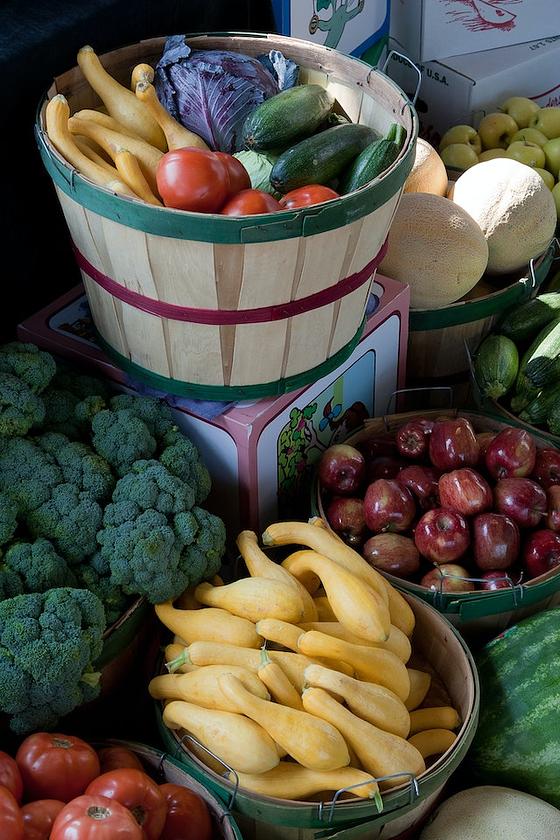
Share Your Knowledge
After you have been gardening for awhile, share what you've learned with the people around you. Invite them to come see your garden and show them all the work that has gone into it.
Photo By Cassandra Stinger
Gardening is a wonderful and rewarding project that allows you to not only be creative, but to become better acquainted with the natural world.





